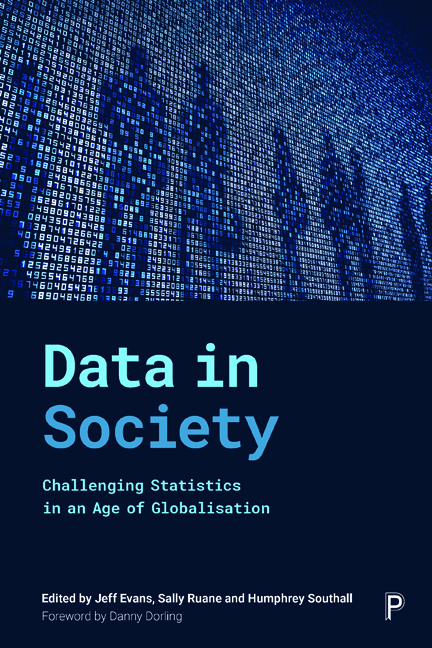Book contents
- Frontmatter
- Contents
- List of figures, tables and boxes
- Notes on contributors
- Foreword
- Preface
- General introduction
- Part I How data are changing
- Part II Counting in a globalised world
- Part III Statistics and the changing role of the state
- Part IV Economic life
- Part V Inequalities in health and wellbeing
- Part VI Advancing social progress through critical statistical literacy
- Epilogue: progressive ways ahead
- Index
5 - Adult skills surveys and transnational organisations: globalising educational policy
Published online by Cambridge University Press: 30 April 2022
- Frontmatter
- Contents
- List of figures, tables and boxes
- Notes on contributors
- Foreword
- Preface
- General introduction
- Part I How data are changing
- Part II Counting in a globalised world
- Part III Statistics and the changing role of the state
- Part IV Economic life
- Part V Inequalities in health and wellbeing
- Part VI Advancing social progress through critical statistical literacy
- Epilogue: progressive ways ahead
- Index
Summary
Introduction: the changing policy contexts of education
Education policy nowadays is being developed on a worldwide scale (Rizvi and Lingard, 2010). Transnational organisations like the OECD (Organisation for Economic Co-operation and Development), the IEA (International Association for the Evaluation of Educational Achievement) and UNESCO are among the key agencies pressing for these changes. Aiming to promote economic and educational development, they are increasingly involved in the production of data. They use measurement frameworks and comparative databases to advocate particular changes in education and lifelong learning policy; for example, in assessing the efficiency of education and training systems, at national and subnational levels.
Particularly important in their organisational strategies are the largescale international performance surveys for school-age pupils, such as PISA (Project for International Student Assessment) and TIMSS (Trends in International Mathematics and Science Study), managed by OECD and IEA respectively. The number and scope of such surveys has recently increased beyond a focus on school-age children, to include, for example, teachers’ views on their working conditions (TALIS, Teaching and Learning International Survey) and national measurement of adult skills and attitudes (PIAAC, Project for the International Assessment of Adult Competencies). Spin-offs include PISA for Development, meant to address the problem that, in lowincome countries, not all the relevant age group (15-year-olds) are in school.
In this chapter, I focus on the OECD surveys, which illustrate the key trends. I first consider PIAAC which, with the First Cycle of results completed in some 40 countries, is reporting between 2013 and 2019. It emphasises three domains considered basic for adults living and working in industrial and ‘knowledge’ economies: namely, literacy, numeracy, and problem solving in technology-rich environments. Since the adults in any country do not form a ‘captive population’ like students at school, PIAAC has to combine sample survey methodology with educational assessment approaches. Because of its importance in both media and governmental evaluation of school systems, I also consider aspects of PISA.
In exploring their strengths and weaknesses, I raise methodological issues relevant to a valid interpretation of such studies. I also draw on critical policy studies to locate these surveys in general policy trends, including globalisation.
- Type
- Chapter
- Information
- Data in SocietyChallenging Statistics in an Age of Globalisation, pp. 65 - 78Publisher: Bristol University PressPrint publication year: 2019



